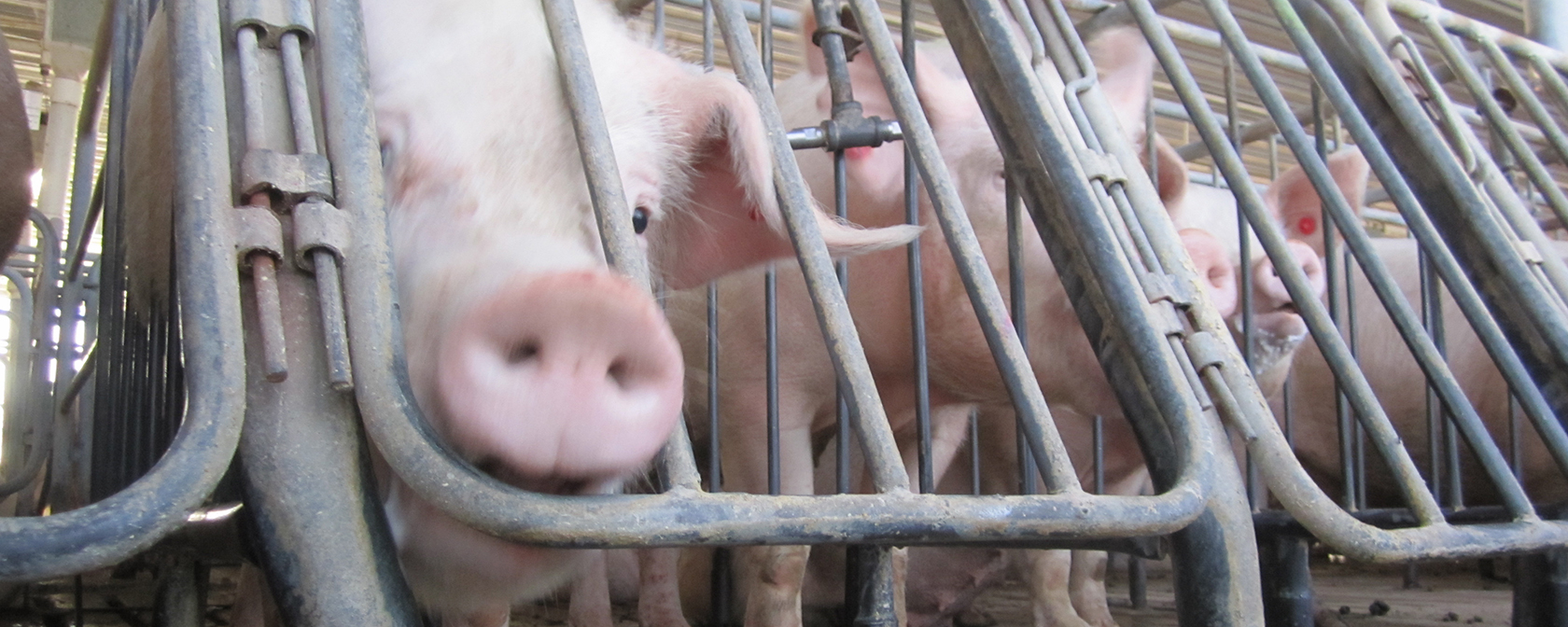By Sara Amundson and Kitty Block
Any day now, the Supreme Court of the United States could issue its ruling in one of the most important court cases in the history of the animal protection movement—one that could have implications for the quality of life of millions of farmed animals.
First, a little background, in case you’re less familiar with this issue: The case is about California’s Proposition 12, a ballot measure that voters passed into law in 2018. The law requires that pork, eggs and veal produced or sold in the state are sourced from animals who are not locked in some of the cruelest cages or crates. Proposition 12’s resounding approval sent a clear message to the meat and egg industry that Californians would not tolerate such cruelty in their marketplace.
Many producers listened and switched to more humane housing systems for their California-bound products. Because of all the voters, donors and organizations who helped enact Proposition 12, Californians can rest assured that the products they buy in their grocery stores will be safer and more humane. But instead of providing Californians with pork that does not come from cruel “gestation crates”—which do not even give mother pigs enough space to turn around—some in the pork industry decided to sue. These producers have been clogging up the court system with cases for nearly five years, losing at every turn.
This past October, the Supreme Court heard oral arguments on the case. We’ve worked with the California Attorney General’s office and allied groups in crafting our briefs and oral arguments, in order to best demonstrate to the justices that voters were well within their rights to approve a ballot measure that addresses important animal welfare and public health concerns. Confining animals in crowded, stressful conditions can make them sick, contributing to the spread of various pathogens that can cause food poisoning or lead to future pandemics.
While our legal experts strongly believe that Proposition 12 aligns with more than two centuries of U.S. case law, it’s impossible to predict how the justices will rule. Importantly, a ruling in this case may not necessarily be as clear cut as “Proposition 12 is upheld” or “Proposition 12 is overturned.” Other possibilities include a more mixed result on the two legal claims in the case, and/or the possibility that the Supreme Court will send the case back down to the lower courts for further proceedings in line with instructions from the high court. Should this happen, we will be prepared for this additional opportunity to detail in court how Proposition 12 is lawfully operating.
Regardless of the outcome, our attorneys will review the decision and its implications before fully addressing it publicly, and we will release a statement as soon as we have an analysis that does justice to the opinion.
It’s pretty incredible that the fight to treat farmed animals with even minimal decency has been so fraught and arduous. Whatever the outcome, know we will never back down in our battle to end animal cruelty. And when it comes to farmed animals, we are honored to be on the side of those who believe that the very least we can do as human beings is give these animals some room to move during their short lives.
Thank you for being with us every step of the way.
Kitty Block is CEO of the Humane Society of the United States.




